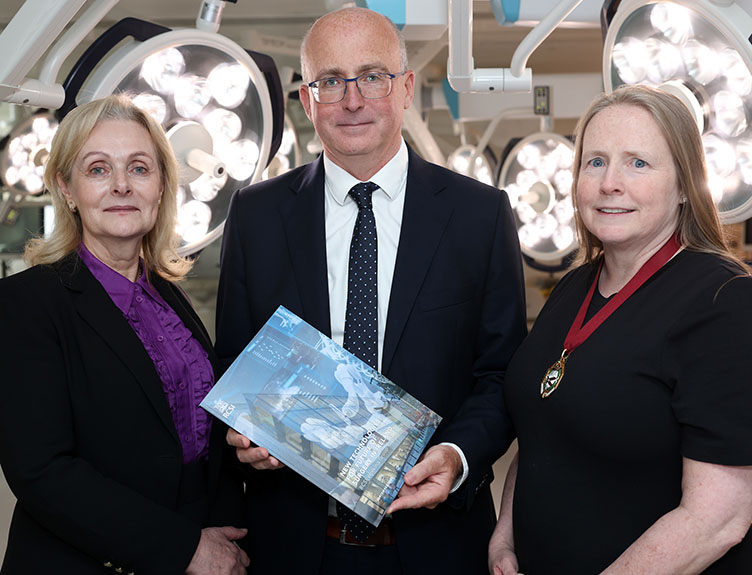New report from RCSI highlights need to support future technologies in surgery

A new report from RCSI has heard from surgeons across a range of specialties and training stages about how technology is changing surgery.
The study explores the current technology-enabled trends that are enabling surgery and improving patients’ lives, and also what is needed to ensure surgeons can use emerging and new technologies into the future.
The New Technologies for Future of Surgery in Ireland RCSI Working Group Report 2024 engaged with 30 surgeons, surgical trainees and researchers across a range of disciplines.
Their responses identified biomaterials, robotics and digital platforms for collaboration as the most important current technologies for surgery, followed by data analytics and 3D-reconstructive models for planning operations.
Looking forward, the study participants believe that artificial intelligence, wearables, virtual/augmented-reality displays and genomic analysis will be of great importance for surgery over the next decade.
Based on the study, surgeons are generally excited by the opportunities for more personalised and less invasive surgeries, and across the board their interest in new technologies is being driven by the desire to improve patient care and outcomes.
However, the study respondents also highlighted potential challenges such as the steep learning curve for surgeons, data security, and overreliance on or inappropriate use of technology. They also conveyed general concern about the ability of surgeons and their units to make best use of new/disruptive technologies.
The majority of study participants believe that such technologies in surgery require a clear national strategy involving all stakeholders including the public; shared procurement considerations are required; and they were concerned at current levels of investment.
First step in engagement
Professor Ronan Cahill, RCSI Council Member and Chair of the Committee on New Technologies in Surgery in Ireland, described the work in the report as a first step in engagement. “Like everywhere else in society, technology is embedded in surgery with increasing capability coming onstream,” said Professor Cahill.
“With advances in computing power alongside improved patient diagnostics, including imaging and genomic analysis, the role of technology in surgery is set to accelerate further into the 21st century,” he added. “Such capabilities require consideration of training, working, implementation and administration.”
The New Technologies for Future of Surgery in Ireland RCSI Working Group Report 2024 also features a series of invited perspectives on surgical training and education, environmental impact, integrating innovation, the need for surgeons to adapt throughout their career, and the medtech industry.
RCSI President Professor Deborah McNamara welcomed the insights expressed by surgeons in Ireland on new technologies for surgical practice. “Technologies are rapidly changing the landscape of surgery and RCSI has a leading role to play to ensure that our surgeons can practise, innovate and improve patient outcomes and lives in this fast-changing environment,” she said.
“The findings and insights from this report will help RCSI to shape our training programmes, to ensure we meet the needs of our current and future surgeons.”
The report was commissioned by immediate Past-President of RCSI, Professor Laura Viani, during her term of office. The initiative involved 30 participants who answered survey questions, with 17 of these taking part in more in-depth interviews.
Download the full report here.



